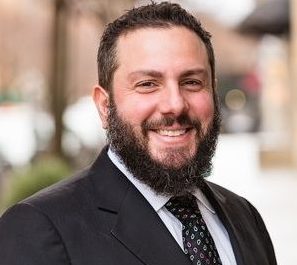“What gets me is how fast the state has just denied — ‘We can’t prove it’s the water,’” Mr. Monahan said. “I think they’re so afraid of tying nine deaths to this. The whole thing is just such a ridiculous tragedy.” (New York Times, February 23, 2016)
From almost day one, it was obvious something was going terribly wrong. Sometimes with a bluish tint, other times brown with sediment, sometimes even smelling like mothballs – something was wrong with the water. Over the past two years, tens of thousands of the residents of Flint, MIchigan have been exposed to extremely high concentrations of lead and other carcinogens simply from using their municipal water supply. And throughout the unfolding of the crisis, as evidence of different ailments began to mount, one constant remained – “a failure to act swiftly to address a dangerous problem or warn the public.” Poor decisions, closed ears and concentrated power have left the residents of Flint trapped.
But how is it that such a situation arose at all?
In Pekudei and the parshiyot preceding it, we read a detailed description of the construction of the mishkan and all of its related articles:
“These are the records of the Tabernacle, the Tabernacle of the Pact, which were drawn up at Moses’ bidding — the work of the Levites under the direction of Ithamar son of Aaron the priest.” (Ex. 38:21)
Great sums of materials were collected for this great project, and responsibility to see it through required skilled and thoughtful leadership. The Midrash (Tanhuma Pekudei 5) notes that from the description of the building of the mishkan we learn to:
“Always appoint at least two people together as trustees over public funds. Even Moses, who enjoyed the full trust of G‑d–as it is written, ‘In all My house, he is trusted’ (Num. 12:7)–figured the accounts of the Sanctuary together with others, as it says: ‘under the direction of Itamar the son of Aaron the Kohen.'”
From the time of Moses, it has been understood that leadership requires a different kind of attention to detail, and to public perception. The Mishna (Shekalim 3:2) teaches that the individual tasked with withdrawing funds from the treasury of the Holy Temple “did not enter the treasury chamber wearing a hemmed cloak, nor with a shoe or a sandal, nor with tefillin or an amulet.” This was done to avoid even the appearance of financial impropriety, “For it is one’s duty to be free of blame before people as before G-d.” From the time of the building of the mishkan the message has been simple: transparency leads to trust. And trust builds a functioning society.
In the case of Flint, once the water supply was switched in April 2014, the negative health consequences began to mount. By August and September, city officials issued “boil water” advisories after the detection of coliform bacteria in city water. In the months that followed, evidence continued to grow that something was very, very wrong in Flint. Still, the extent of the danger was continuously downplayed and concealed as government agencies bickered over the seriousness of the problem and who was responsible for handling it. In one striking example, as evidence of an outbreak of legionnaires’ disease became evident, there was not one public warning – city or county-wide – issued in 2014 or 2015. Emails detailing the behind the scenes correspondence of government officials paint a picture of a desire to deny and cover-up rather than inform the public.
The point here, as in the Mishna, is not that transparency always prevents impropriety – it cannot. The point is that when information is withheld from the public, two harms are caused. First, the potential is much greater that those in power will feel license to act unscrupulously. Second, the public will rarely judge its leadership with the benefit of the doubt – assuming that the lack of transparency was an attempt to conceal something nefarious. Perhaps the officials who managed the Flint water transmission and ensuing crisis were acting only with the best of intentions. Or perhaps they let personal gain or a fear of potential negative attention cloud their good judgment. A culture that promoted secrecy over transparency left a vulnerable public not knowing. It left a city without the resources to have their suffering addressed in a meaningful way. And–up to this point–it leaves a community searching for answers and seeking blame rather than feeling empowered and served by their government. Who knows how many human beings would have been able to remain healthy if they had only been informed sooner.
Rabbi Jonah Geffen is the Spiritual Leader of Congregation Shaare Zedek on the Upper West Side of Manhattan in New York City. He lives not far from the shul with his beloved, Julia, and their two daughters.
Want to receive Torah from T’ruah in your inbox every week? Sign up here!

